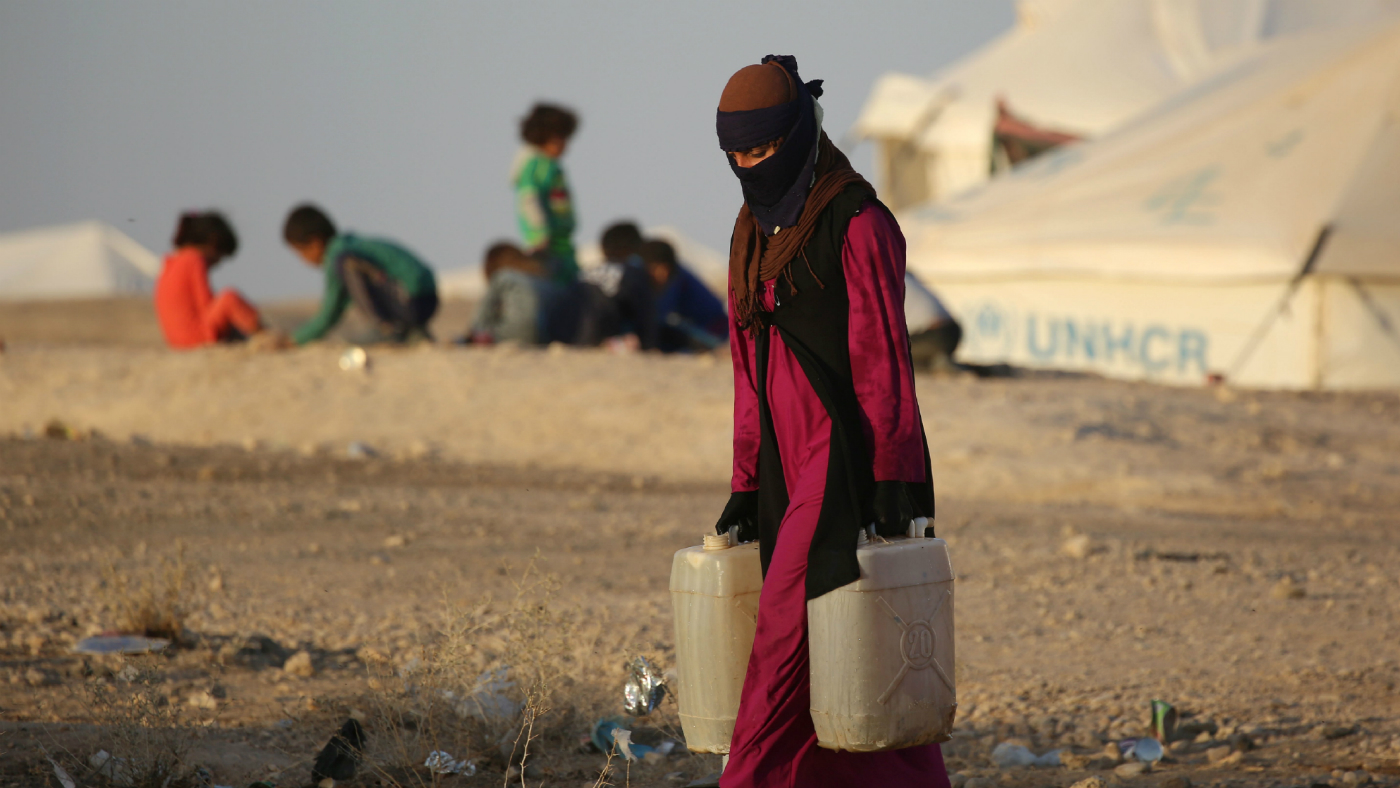Syrian women ‘forced to trade sex for aid’
Local men delivering aid for the UN and international charities responsible for abuse, report finds

A free daily email with the biggest news stories of the day – and the best features from TheWeek.com
You are now subscribed
Your newsletter sign-up was successful
Syrian women are being coerced into sex in exchange for humanitarian assistance, a new report has revealed.
In the latest sex abuse scandal to hit the charity sector, aid workers have detailed how men working on behalf of the UN and international charities are trading food and lifts for sexual favours.
“Despite warnings about the abuse three years ago, [the] report shows it is continuing in the south of the country,” the BBC reports.
The Week
Escape your echo chamber. Get the facts behind the news, plus analysis from multiple perspectives.

Sign up for The Week's Free Newsletters
From our morning news briefing to a weekly Good News Newsletter, get the best of The Week delivered directly to your inbox.
From our morning news briefing to a weekly Good News Newsletter, get the best of The Week delivered directly to your inbox.
Charity employees said the exploitation is so widespread that some women are refusing to go to distribution centres because people would assume they had offered their bodies for the aid, the broadcaster adds.
The report, from the United Nations Population Fund (UNFPA), cited examples of women or girls marrying officials for a short period of time “for sexual services” in order to receive meals.
Humanitarian organisations have been accused of turning a blind eye to the abuse because using third parties and local officials was the only way of getting aid into dangerous parts of the country, the BBC says.
“Sexual exploitation and abuse of women and girls has been ignored, it’s been known about and ignored for seven years,” says Danielle Spencer, a humanitarian adviser working for a charity.
A free daily email with the biggest news stories of the day – and the best features from TheWeek.com
She adds: “The UN and the system as it currently stands have chosen for women’s bodies to be sacrificed.”
Aid agencies say they have since tightened up their reporting and training procedures, and some no longer hand over aid to local councils.
A UNHCR spokesperson said it was aware of the allegations at the time but there had been insufficient information to identify and take action against any people or organisations, the BBC says.
The report comes as the charity sector struggles to repair its reputation after the Oxfam sex scandal in Haiti.
-
 Why is the Trump administration talking about ‘Western civilization’?
Why is the Trump administration talking about ‘Western civilization’?Talking Points Rubio says Europe, US bonded by religion and ancestry
-
 Quentin Deranque: a student’s death energizes the French far right
Quentin Deranque: a student’s death energizes the French far rightIN THE SPOTLIGHT Reactions to the violent killing of an ultraconservative activist offer a glimpse at the culture wars roiling France ahead of next year’s elections
-
 Secured vs. unsecured loans: how do they differ and which is better?
Secured vs. unsecured loans: how do they differ and which is better?the explainer They are distinguished by the level of risk and the inclusion of collateral
-
 Epstein files topple law CEO, roil UK government
Epstein files topple law CEO, roil UK governmentSpeed Read Peter Mandelson, Britain’s former ambassador to the US, is caught up in the scandal
-
 Iran and US prepare to meet after skirmishes
Iran and US prepare to meet after skirmishesSpeed Read The incident comes amid heightened tensions in the Middle East
-
 Syria’s Kurds: abandoned by their US ally
Syria’s Kurds: abandoned by their US allyTalking Point Ahmed al-Sharaa’s lightning offensive against Syrian Kurdistan belies his promise to respect the country’s ethnic minorities
-
 Israel retrieves final hostage’s body from Gaza
Israel retrieves final hostage’s body from GazaSpeed Read The 24-year-old police officer was killed during the initial Hamas attack
-
 China’s Xi targets top general in growing purge
China’s Xi targets top general in growing purgeSpeed Read Zhang Youxia is being investigated over ‘grave violations’ of the law
-
 Syria’s Islamic State problem
Syria’s Islamic State problemIn The Spotlight Fragile security in prison camps leads to escape of IS fighters
-
 Panama and Canada are negotiating over a crucial copper mine
Panama and Canada are negotiating over a crucial copper mineIn the Spotlight Panama is set to make a final decision on the mine this summer
-
 Why Greenland’s natural resources are nearly impossible to mine
Why Greenland’s natural resources are nearly impossible to mineThe Explainer The country’s natural landscape makes the task extremely difficult